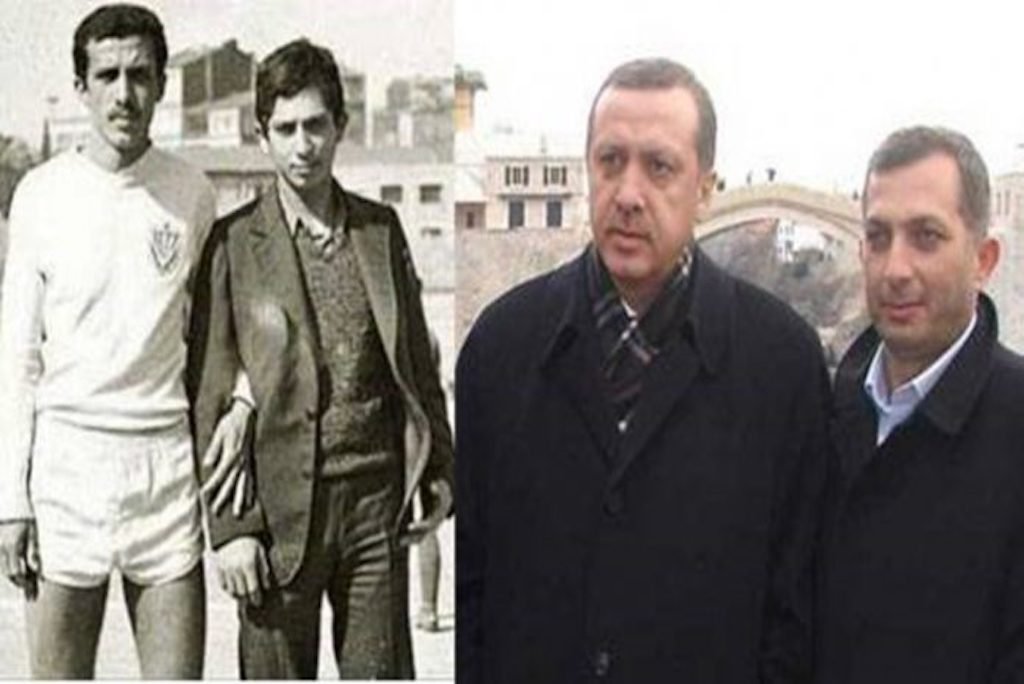Wiretaps of phone conversations between autocratic Turkish President Recep Tayyip Erdoğan and Justice and Development Party (AKP) deputy Metin Külünk have revealed Erdoğan’s interference in protests in Berlin against the German parliament’s approval of a resolution in June 2016 declaring that the mass killing of Armenians by Ottoman Turks during World War I was a “genocide,” according to a recent report in the German Der Spiegel magazine.
The magazine, which published a report on the Osmanen Germania BC, a controversial boxing club linked to the Turkish government, in its March 24 issue revealed the records of a phone conversation between Erdoğan and Külünk on June 1, 2016, one day before the Armenian resolution was debated in the Bundestag.

Külünk’s phone was being tapped at the time by the Hessen police, according to Der Spiegel.
“Hello,” says Erdoğan in the phone conversation as his foreign minister hands him the phone. The man in Berlin, Külünk, whose phone was being monitored, asks, “My dear President, with respect, how are you?”
Erdoğan then listens to his confidant Külünk’s report, which concerned a demonstration organized by Külünk protesting the Bundestag’s Armenian resolution. “I wanted to present that to you, Your Highness,” Külünk says, adding: “I am waiting for your orders.” Erdoğan replies that they will call and wishes Külünk a “blessed night.”
The 2016 vote heightened German-Turkish tensions, and Turkey recalled its ambassador from Germany.
Turkey denies that there was a systematic campaign to slaughter Armenians as an ethnic group during World War I. It also points out that many Turkish civilians died in the turmoil during the collapse of the Ottoman Empire.
In the meantime, Külünk’s name is currently appearing in the German media due to his links to Osmanen Germania BC.
Külünk reportedly provided money to the boxing gang to purchase weapons, organize protests and target critics of the Turkish leader, according to Deutsche Welle.
The results of research by DW suggest a relationship between Osmanen Germania BC and Külünk as well as Turkey’s National Intelligence Organization (MİT), the AKP’s European lobbying organization and Erdoğan himself, DW reported in December.
Külünk described these allegations at the time as a plot by followers of the Gülen movement, accused by the Turkish government of orchestrating a failed coup in 2016.
“None of the activities or visits I made in my personal capacity or on behalf of the AKP were illegal. On the contrary, transparency has always been a priority,” Külünk said.
He said the accusations defaming Erdoğan were typical of FETÖ, a derogatory term coined by the AKP government to describe the Gülen movement.
Meanwhile, the trial of eight members of the Osmanen Germania gang, officially registered as a boxing club, began in the German city of Stuttgart on March 26. The members are accused of involvement in a number of criminal activities, including drug and gun trafficking, attempted murder, soliciting prostitution and blackmail, Deutsche Welle has reported.
The suspects are believed to have committed many crimes between 2016 and 2017 in Baden Württemberg state. According to the indictment, the club “attempts to kill” members desiring to leave the organization. “This is not a boxing club as it had legally been established. This is also not a goodwill organization keeping kids off the streets,” Jan Holzner, a spokesman for the prosecutors, was quoted as saying by Deutsche Welle.
The group has 22 local chapters across Germany with around 300 members, many with Turkish roots, according to the Interior Ministry. Since its founding in 2015, Osmanen Germania is reported to have taken steps to “assume dominance” against other similar clubs.
The trial began on March 26 amid tight security, with helicopters and police officers seen escorting the suspects to the courtroom. The trial is expected to have 50 hearings and be completed by January 2019. (SCF with turkishminute.com)
















[…] stockholmcf.org googletag.cmd.push(function() { googletag.display('div-gpt-ad-1444645527103-1'); }); […]
[…] Πηγή: stockholmcf.org […]
[…] Πηγή: stockholmcf.org […]
[…] Πηγή: stockholmcf.org […]